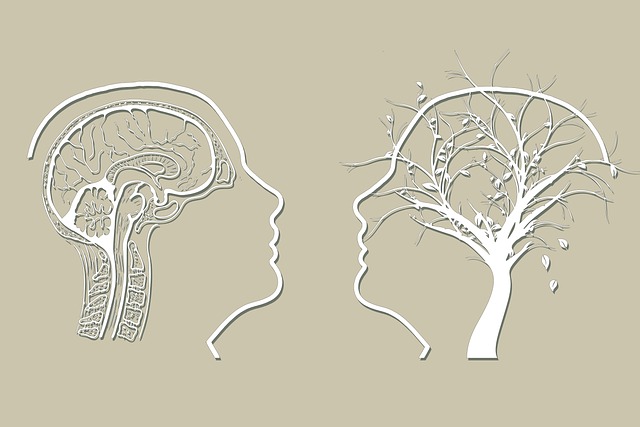The text emphasizes the severe impact of stigma on children's mental well-being, leading to silence and shame that hinder access to much-needed support. It promotes Therapy for Children Crisis Counseling as a critical approach to breaking down these barriers by offering specialized care tailored to young individuals' unique needs. Key strategies include risk management planning for professionals, effective communication, coping skills development, depression prevention, and mental wellness coaching. Community engagement, education, policy changes, and advocacy are also highlighted as vital components in reducing stigma and promoting early intervention through Therapy for Children Crisis Counseling, ultimately enhancing children's mental health outcomes.
Mental illness stigma, a pervasive barrier to treatment and recovery, demands continued efforts to reduce its devastating impact. This article explores various strategies aimed at challenging societal perceptions and fostering understanding. From targeting children’s mental health stigma through special focus initiatives, to effective therapy session approaches and community engagement, each section delves into actionable methods. Additionally, policy changes and advocacy are highlighted as essential long-term solutions, emphasizing the need for comprehensive support systems, including crisis counseling services.
- Understanding the Impact of Stigma on Mental Health
- Targeting Children's Mental Illness Stigma: A Special Focus
- Effective Strategies for Reducing Stigma in Therapy Sessions
- Community Engagement and Education: Breaking Down Barriers
- Policy Changes and Advocacy: A Long-Term Approach to Mental Illness Support
Understanding the Impact of Stigma on Mental Health

Stigma surrounding mental illness can have profound effects on individuals’ well-being and recovery journeys. When communities and societies stigmatize mental health issues, it often leads to a cycle of silence and shame, preventing people from seeking the necessary support. This internalized stigma can cause individuals to withdraw from society, struggle with self-esteem, and even exacerbate existing symptoms. For children facing a crisis, this impact is particularly concerning, as they are still developing essential coping mechanisms and social skills. Therapy for Children Crisis Counseling plays a pivotal role in breaking down these barriers by offering specialized support tailored to their unique needs.
Mental health professionals face the dual challenge of managing their own well-being while providing effective care. Risk Management Planning is an essential tool in this context, helping practitioners navigate potential risks and ensure they can offer the best possible services. By integrating communication strategies that foster understanding and empathy, mental health professionals can create safe spaces for individuals to share their experiences without fear of judgment. This approach, combined with early intervention and Depression Prevention measures, has been proven to significantly improve outcomes and reduce the long-term impact of stigma on mental health.
Targeting Children's Mental Illness Stigma: A Special Focus

Reducing stigma surrounding mental illness among children is a vital step in ensuring they receive the support and care they need. Children’s mental health issues often manifest as early as preschool years, with conditions like anxiety, depression, and trauma affecting their ability to learn and socialize. Stigma can exacerbate these challenges, leading to avoidance of seeking help and subsequent deterioration in their mental wellness.
Therapy for children crisis counseling plays a crucial role here. By integrating coping skills development into therapy sessions, counselors can empower young individuals with the tools needed to navigate and manage their emotions effectively. Additionally, depression prevention strategies targeted at this age group can significantly alter the trajectory of mental health issues later in life. Mental wellness coaching programs development tailored for children not only helps them cope but also fosters resilience, enabling them to thrive despite adversity.
Effective Strategies for Reducing Stigma in Therapy Sessions

In therapy sessions, reducing mental illness stigma involves creating a safe and supportive environment where individuals feel comfortable discussing their experiences openly. Therapists play a crucial role in this process by actively listening to clients, validating their feelings, and normalizing mental health challenges. Using child-friendly language and metaphors tailored to the client’s age can help demystify mental health issues, making them less intimidating.
Effective strategies include integrating emotional regulation techniques into therapy, offering crisis intervention guidance, and promoting resilience building activities. These approaches empower clients to manage their emotions, cope with crises more effectively, and develop a positive self-image. Regularly reviewing progress, setting achievable goals, and celebrating successes further reinforce a sense of accomplishment and hope, thereby reducing stigma and fostering healing.
Community Engagement and Education: Breaking Down Barriers

Community engagement and education play a pivotal role in reducing the stigma surrounding mental illness. By fostering open dialogues and increasing awareness, communities can break down barriers that often isolate those struggling with their mental health. Through collaborative efforts involving local organizations, healthcare providers, schools, and community leaders, individuals facing challenges like anxiety, depression, or trauma can receive much-needed support. Educational programs targeting both the general public and at-risk groups can dispel myths and misconceptions, promoting empathy and understanding.
Targeting children and adolescents through therapy for children crisis counseling is a strategic approach to early intervention. Equipping young minds with self-care practices and crisis intervention guidance empowers them to recognize and manage their emotional well-being proactively. This proactive stance not only prevents the escalation of mental health issues but also encourages a culture that prioritizes emotional healing processes, ensuring that individuals feel supported rather than stigmatized when seeking help.
Policy Changes and Advocacy: A Long-Term Approach to Mental Illness Support

Policy changes and advocacy play a pivotal role in the long-term approach to mental illness support. By pushing for legislative reforms, mental health advocates seek to ensure that services are accessible, affordable, and culturally sensitive. This involves addressing systemic barriers, such as insufficient funding for mental health services, limited insurance coverage, and discrimination in healthcare settings. A robust policy framework can also promote the integration of mental health care into primary healthcare systems, making it more accessible to underserved populations, including children.
Therapy for Children Crisis Counseling is a prime example of how policy interventions can directly impact mental illness stigma reduction efforts. By advocating for specialized counseling services within schools and community centers, policymakers can normalize conversations around mental health and encourage early intervention. Additionally, burnout prevention strategies for healthcare providers, often discussed in the context of Burnout Prevention Strategies for Healthcare Providers and Burnout Prevention, are crucial components of sustainable mental health support. These strategies aim to mitigate professional fatigue, ensuring that healthcare providers remain effective advocates for their patients’ mental well-being.
Mental illness stigma reduction is a multifaceted approach that involves understanding its profound impact, targeting children’s perceptions through special focus initiatives, employing effective strategies in therapy sessions, fostering community engagement and education, and advocating for policy changes. By combining these efforts, we can create a more inclusive society where individuals receive the necessary mental health support, including crisis counseling, without fear of judgment. This collective action is crucial in ensuring that everyone has access to healing and growth, ultimately enhancing overall well-being.












